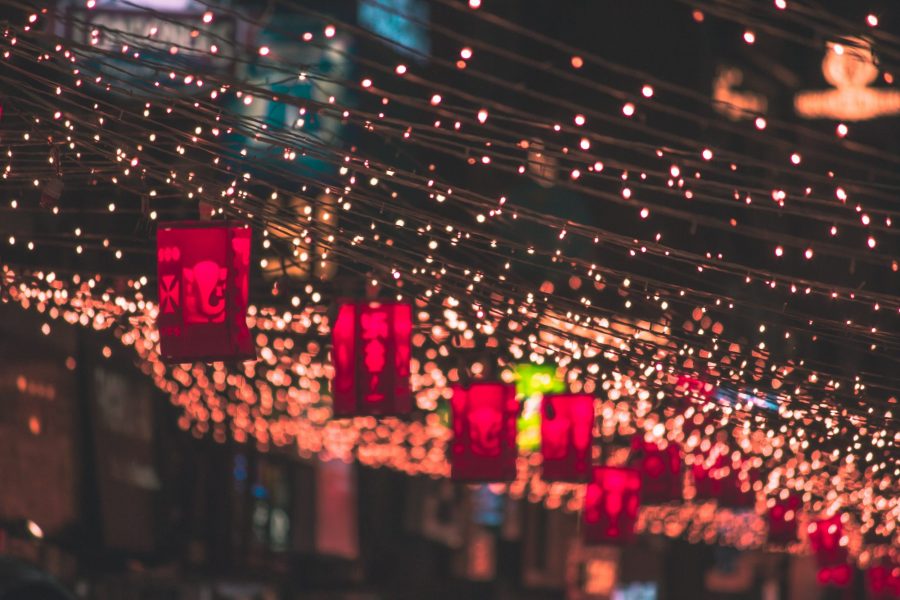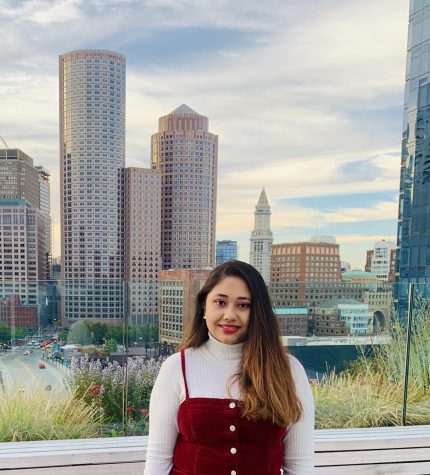Celebrating the festival of lights in Boston
October 27, 2019
The blinding lights decorated along the streets, the chaos outside from Bollywood music and fire-crackers and the constant visits from friends and family to your home with sweets and gifts. If these are the things you are missing around this time of the year, chances are you’re an Indian international student away from home on Diwali.
Millions of people across the world will be celebrating the festival of Diwali, one of the most important religious festivals in India this weekend on Oct. 27,. The date to celebrate Diwali varies every year by a week or more because the date is determined by the Hindu calendar which consider both the movements of the sun and the moon.

What is Diwali and how is it celebrated?
Diwali, or more traditionally known as “Deepawali” means the festival of lights. The festival is a celebration of the victory of good over evil, of knowledge over ignorance and of love over hate. Its origins are deeply rooted in Hindu mythology, celebrating the return of Lord Ram, his wife Sita and brother Lakshman after 14 years of banishment and their victory over the demon king Ravan of Lanka. The people of Ayodhya kingdom lit up their houses with earthen oil lamps known as “diyas” to celebrate the return of their king, and this celebration has continued over thousands of years as Diwali.
The celebrations begin first with prayers to Lakshmi, the goddess of wealth and prosperity. Followed by people decorating their homes with diyas and rangoli (a traditional Indian floor art), dressing up in new clothes and inviting their friends and family to celebrate with traditional food, street parties, lighting earthen diyas and sparkly fireworks.
Diwali celebrations vary in different regions of India, the various diverse Non-Hindu communities’ interpretation of Diwali ties with their own religious stories and for this reason Diwali has become known as a Pan-Indian festival. But one thing that’s common in all these celebrations is the importance of light over darkness, which evinces the possibility of hope and happiness.
It can be hard for Indian students, who live far away from their friends and families to celebrate Diwali in a new country. But in Boston , there’s a big community of international students who understand the importance of this festival.
Every year, Diwali events are organized in different places around the city and at different dates in October and November, so if you miss one event, you can always look for more to attend.
Northeastern’s Indian Graduate Students Association, NU Sanskriti, celebrates Diwali with an event called Desi Diwali 2019 on Oct. 25, the event requires purchasing a ticket to attend but it includes card games, karaoke and Desi food station.
Boston University Hindu Student Council and the BU India Club celebrate the festival by hosting a dinner with Indian cuisines called “Diwali Festival of Lights Dinner in Boston” on Oct. 29.

The Museum of Fine Arts’s Diwali event on Oct. 30, offered for free, includes music and dance performances, interactive artist demonstrations, tours in the galleries exploring highlights from the collection of South Asian art, and so on.
Boston Children Museum has a celebration on Nov. 2 for families to experience the sights of Diwali with decorations of Diyas, colorful Rangoli arts and tasty sweets.
The Massachusetts College of Pharmacy and Health Science’s BAPS Campus Fellowship will host a free Diwali Celebration on Nov. 13.


